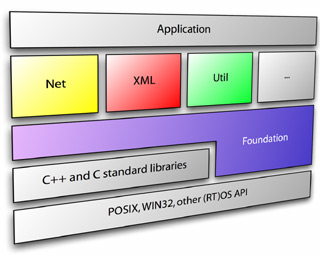Embedded Linux app IDE bundles C++ libraries
Jan 19, 2007 — by LinuxDevices Staff — from the LinuxDevices Archive — 1 views Applied Informatics is shipping a pre-release version of an Eclipse-based IDE (integrated development environment) for embedded Linux application development in C++. The Austria-based software consulting firm's Rapide++ IDE runs on both Windows and Linux development hosts and comes with C++ class… libraries for network-centric applications.
Applied Informatics is shipping a pre-release version of an Eclipse-based IDE (integrated development environment) for embedded Linux application development in C++. The Austria-based software consulting firm's Rapide++ IDE runs on both Windows and Linux development hosts and comes with C++ class… libraries for network-centric applications.
The Rapide++ IDE is based on the Eclipse project's CDT (C development tool) editor and comes with GNU GCC toolchains that support cross-compilation on either Windows or Linux hosts. The IDE also ships with a collection of C++ class libraries produced by the POCO (portable components) project, which is sponsored by Applied Informatics.

POCO libraries diagram
True to their name, the POCO components are available for a number of target OSes, including Linux, Windows, Mac OS X, HP-UX, Tru64, Solaris, and QNX. Applied Informatics says POCO project software aims to simplify the development of network-centric devices, by providing standard libraries for:
- Threads, thread synchronization and advanced abstractions for multithreaded programming
- Streams and filesystem access
- Shared libraries and class loading
- Logging and error reporting
- Security
- Network programming (TCP/IP sockets, HTTP, FTP, SMTP, etc.)
- XML parsing (SAX2 and DOM) and generation
- Configuration file and options handling
- Database access
Additional touted Rapide++ features include:
- Remote debugging
- Automatic discovery of development boards connected via Ethernet (TCP/IP)
- Automatic IP address assignment
- Target tools include terminal, filesystem browser, editor, system viewer, process list, and thread viewer
- POCO C++ class libraries
Applied Informatics did not announce a target ship date for Rapide++, or specifics about how the product will be licensed. It has, however, announced plans to offer training and support services around the IDE.
Additionally, the company has published a Flash-based screen cast that walks the user through connecting the IDE to a board and remotely debugging an application.
This article was originally published on LinuxDevices.com and has been donated to the open source community by QuinStreet Inc. Please visit LinuxToday.com for up-to-date news and articles about Linux and open source.